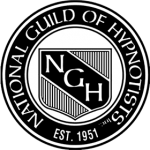What is Hypnosis
Hypnosis can help you achieve positive changes in your life.
A large part of our behavior as humans happens without our conscious thinking and is governed by our subconscious and unconscious mind.
Treatment through hypnosis aims to work directly with the subconscious and unconscious, thereby influencing emotions, thoughts, and behavior.
Most people experience a kind of passive hypnosis daily. Daydreaming is a form of passive hypnosis. Being absorbed in an activity and momentarily “spacing out” while still being in full control is also a type of passive hypnosis.
When a person is hypnotized, the state is similar, but now there is active subconscious communication between the person being hypnotized and the hypnotist. This allows for many aspects of a person’s thoughts, feelings, attitudes, beliefs, and behaviors to be transformed with the client’s consent.
No one can be hypnotized against their will. All hypnosis is self-hypnosis.
The experience of hypnosis can vary from session to session and from person to person. It is a state of deep, pleasant relaxation and calm, often accompanied by heightened attention and concentration.
What to Expect from a Session
A session begins with an interview to get an overview of what needs to be addressed. Based on this, the treatment is conducted. You will also be given an explanation of what hypnosis and hypnotherapy entail.
How Many Sessions Are Needed?
In most cases, 2 to 3 hypnosis sessions are sufficient. Some people may resolve their issues after just one session, while others may need five or more sessions. The number of sessions required depends on the specific challenge. The change is lasting and often positively affects other areas of life beyond what was initially expected.
I have experience in the following areas:
- Stress and stress-related problems
- Anxiety
- Fear of the fear
- Phobias
- Dental Anxiety
- Fear of flying
- Sleep issues
- Improved Concentration and Memory
- Low Self-Esteem
- Inappropriate Habits
- Smoking Cessation
- Eating Disorder
- Weight Loss
Listen to a relaxation audio file of 9 minutes. Give yourself a break.
Read Here About: Hypnosis, a State You Already Know
Hypnosis has become more recognized and is gaining increasing acceptance within various areas of our healthcare system. It is used for the relief and treatment of stress, pain, sleep issues, anxiety, addictions, phobias, and more. Many professionals in established fields, such as dentists, psychologists, and healthcare workers, are now acknowledging and incorporating hypnosis into their daily practice.
The perception of hypnosis has shifted from being primarily associated with entertainment and stage acts to becoming a well-respected and widely used therapeutic method. One of the strengths of hypnosis is the natural way it addresses problems. There are no side effects from hypnosis treatment.
However, in certain cases, it is important to consult a doctor before undergoing hypnosis treatment. Hypnosis is not a replacement for traditional medical care. One area where hypnosis is particularly effective is in treating stress, anxiety, addictions, phobias, and related issues.
The Hypnotic State
What exactly is the state you enter when you are under hypnosis? First, it is important to dispel some common myths surrounding hypnosis. During hypnosis, you are awake—you do not fall asleep. You remain in full control, and no one can be hypnotized against their will. However, anyone can be hypnotized if they choose to be.
You maintain control throughout the entire process; the hypnotist or hypnotherapist acts as a guide, offering support and direction. Hypnotherapy involves working on issues while in the hypnotic state.
This state can be described as being awake, with concentrated and focused attention. It is similar to when you are deeply immersed in an activity that absorbs you completely, and the surrounding environment fades into the background. You focus on what is important.
Before the Hypnosis Session
Before the actual hypnosis session begins, the issue at hand is identified and discussed, including expectations. It is important to establish what is realistic to expect and what can be achieved within the given parameters and possibilities. Having access to inner resources is crucial, and in many cases, hypnotherapy involves helping clients tap into their untapped potential.
Change what you’ve long wanted to change! Do what you’ve long wanted to do!**
Become better at being yourself!
Relaxation Exercises and Introduction to Self-Hypnosis
Relaxation Exercise: Two-Minute Relaxation
This quick exercise trains your attention to focus on your breathing:
1.Focus on Your Breathing: Slowly inhale and exhale while scanning your body for areas of tension.
2.Release Tension: As you breathe in and out, direct your breath into tense areas.
3.Gentle Movements: Slowly and carefully rotate your head without reaching the extreme positions. Then roll your shoulders, first in one direction and then the other.
4.Muscle Relaxation: Let your muscles relax and keep focusing on your breath.
5.Positive Imagery: Recall some pleasant thoughts or situations.
6.Deep Breaths: Take a few deep breaths, and as you exhale, release any remaining muscle tension.
You should now feel more relaxed.
Mental Relaxation Exercise
1.Close Your Eyes and Breathe: Inhale through your nose.
2. Calm Affirmation: As you exhale, silently say a short phrase or word that you associate with calm, balance, and harmony. Examples include:
– “Calmer”
– “More and more relaxed”
– “Here and now”
– “I release” (tensions, thoughts…)
– “One thing at a time”
You can also choose a phrase or word that has personal meaning to you.
3. Stay Focused: Continue this exercise for about 2 minutes. If your mind starts to wander, gently bring your focus back to your breathing.
Self-Hypnosis (5 Minutes)
This is a brief introduction to self-hypnosis, which can be used to further relax or mentally work towards a goal between hypnosis sessions. It is most effective with professional guidance, but here is a simple exercise you can benefit from:
1.Create a Positive Statement: Formulate a sentence that is positive, meaningful, achievable, in the present tense, and includes a reward. Examples:
– “Every day I practice self-hypnosis, I feel better and better in every way.”
– “Each day I cycle, I become healthier, have more energy, and it makes me happy.”
– “Every time I tell myself that I am okay just as I am, I feel better and better.”
2.Find a Quiet Place: Choose a calm and relaxed setting where you won’t be disturbed. Turn off your phone completely.
3.Get Comfortable: Sit comfortably and close your eyes.
4.Focus on Your Breathing: Keep your focus on your breath until you reach a calm, relaxed state.
5.Repeat Your Statement: Silently repeat your chosen sentence to yourself as you remain relaxed.
By practicing these exercises regularly, you can enhance your relaxation and mental focus, making it easier to reach your goals.
If you are a student experiencing performance anxiety, stress, or other challenges, a student discount is available for hypnosis and therapy sessions.
Call for more information.
Hypnosis and Habits
The philosopher Aristotle once said, “We are what we repeatedly do.” Developing positive, life-enhancing habits can make the difference between living life to its fullest and wasting time on unhealthy and unproductive activities.
Bad habits like procrastinating, avoiding chores, skipping exercise, arguing with a partner, overeating, or spending hours watching TV or surfing the internet are usually not rational choices. It often feels like these behaviors “just happen,” even when you promise yourself to stop but end up falling back into the same old patterns.
Your brain is a powerful learning machine. It has evolved to adapt to changing circumstances and can learn new habits at any point in life.
Through my work in therapy and hypnosis, I have repeatedly seen people transform long-standing habits—such as smoking or overeating—that they never thought they could change. Over time, I’ve identified three core principles for successful habit change.
1. Motivation
Start by internally reinforcing the negative consequences of your habit, such as the type of person you might become and the impact it could have on your life if you continue down this path. Compare this to the benefits of establishing a new, healthier habit. This reflection can help you reprioritize your choices, even if it involves a small change.
For instance, if your daily actions make you feel disorganized and careless, think about the advantages of changing your habits to become efficient, organized, and productive. Building a new habit can bring many benefits. Even small changes can greatly influence your motivation and self-perception. Hypnosis can boost this motivation, making it easier to shift from a life dominated by bad habits to one filled with new opportunities.
2. Understanding Emotional Needs
What emotional need does your habit fulfill?
– Procrastination might provide a temporary sense of relief from facing difficult tasks.
– Arguing with a partner could be a way to release pent-up emotions.
Recognizing the underlying needs that your habit is trying to meet allows you to plan how to satisfy those needs in healthier ways.
Make sure to reward yourself after completing something challenging but ultimately more rewarding than avoiding it. For example, overcoming the initial barrier to exercise can lead to a greater sense of satisfaction than indulging in immediate but empty pleasures.
Physical activity, for instance, can serve as a way to release stress and give you a sense of accomplishment. This new, healthier cycle can help establish a new habit. Hypnosis can aid in this process by helping you identify the emotional needs behind your habits and create new, rewarding behavior patterns.
3. Break the Habit—Literally
When a habit triggers an impulse, break away from your usual response. If you typically reach for a large piece of cake with your afternoon coffee, try switching to a cup of tea with a healthy snack like fruit or nuts instead.
Doing something different from your habitual routine creates new pathways in your brain. Each time you take a different action, it is the start of a new neural pathway that could lead to a healthier, more rewarding habit.
Hypnosis can help you break the habit by addressing the subconscious part of your mind where these impulses originate. Let hypnosis work with you to lay the foundation for a better life.






